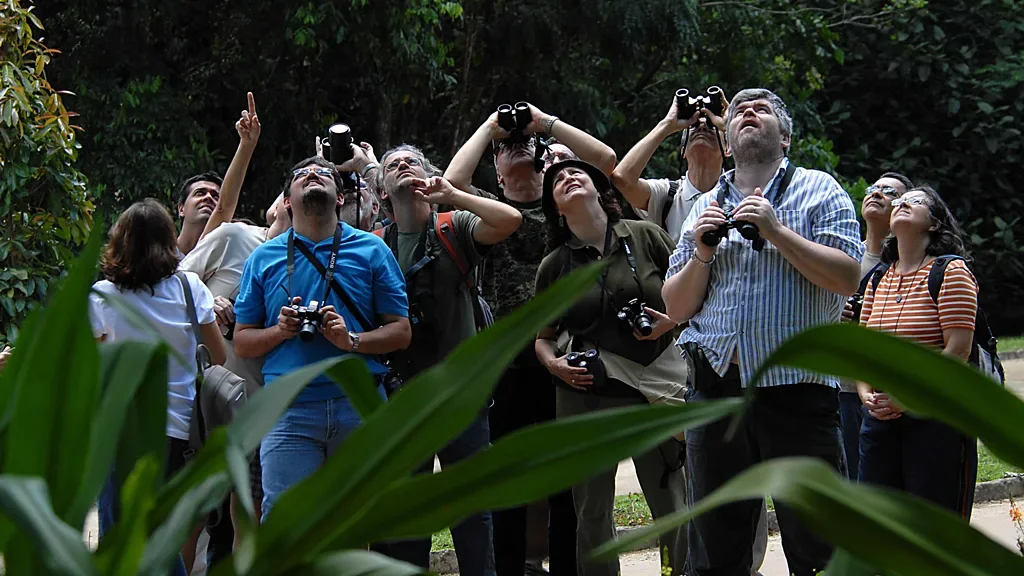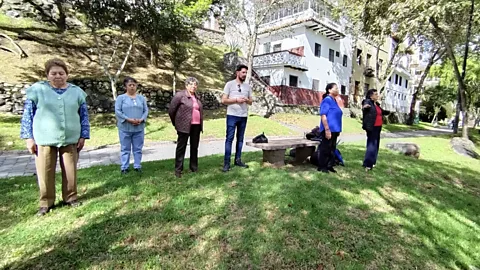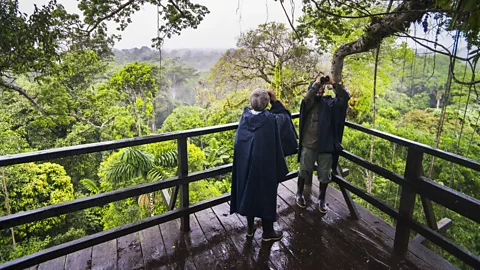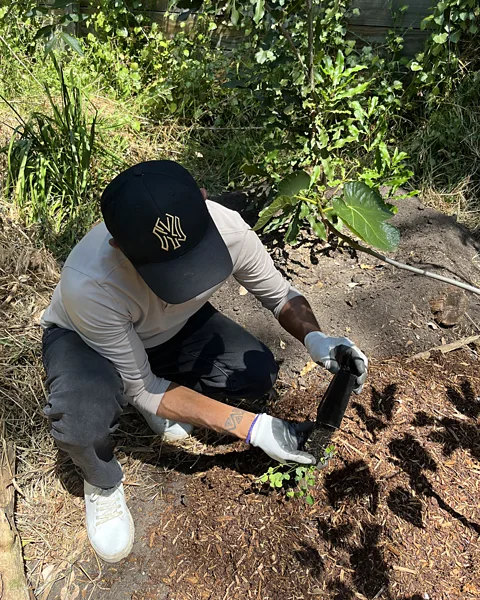Bat-watching, beach explorations and 'sniff' walks: How nature can provide a tonic for loneliness
 There is an ever-growing list of the benefits of natural prescriptions – now researchers say nature could offer a cure for loneliness too.
There is an ever-growing list of the benefits of natural prescriptions – now researchers say nature could offer a cure for loneliness too.
Kye Aziz didn't consider himself a big nature lover. As an asylum-seeker originally from Indonesia, now based in Melbourne, he'd spent stints of time in the outback and high country. But it wasn't until a socially-prescribed picnic and gardening excursion that he began to see nature in a new way.
"You feel like you're transported somewhere else," says Aziz. "Living in Australia and in Western culture can be very lonely and individualistic – but when we're sitting outside and having a laugh and feeling that togetherness, it just feels like home."
There's a science to that feeling. In the 1980s, in a public health bid to help stressed urban workers heal through nature, the Japanese government invested in a campaign for "shinrinyoku", or forest bathing. At first, "it was a feeling, not a science" says Qing Li, a medical doctor and clinical professor at Nippon University in Tokyo. But in recent decades, Li and other researchers have linked forest bathing to lower blood pressure, a stabilised nervous system, fewer stress hormones, boosted immune function, and reduced anxiety, depression, anger and fatigue.
According to the late naturalist, Edward Wilson, these health benefits are a product of "biophilia" – an innate love of nature that underpins our near-universal tendency to interact with plants, animals, and other humans.
By making us feel more calm and present, spending time in nature has the potential to help us overcome the self-destructive thinking patterns that can inadvertently increase loneliness – a subjective experience, not an objective state. One study found time in nature reduces neural activity in the subgenual prefrontal cortex, an area of the brain linked to negative thinking patterns, or rumination, and associated with loneliness.
Now, in a first-of-its-kind global nature-based social prescribing experiment – spanning from Ecuador to Australia – early findings suggest time spent with others in nature could dramatically change conversations on health, healthcare, and loneliness.
"When people are outside, they talk about being relaxed, being away from it all, how it just makes them feel good," says Jill Litt, a environmental studies and public health researcher at the University of Colorado Boulder, US. "Nature happens to be very good at making people ready for change, vulnerable – and open to new experiences."
 Karla Vásquez Recetas Cuenca
Karla Vásquez Recetas CuencaBut Recetas demonstrates one of the largest efforts to study the effects of nature-based social prescriptions onloneliness, specifically. "In our accelerated world, having two hours to be face-to-face [with other people] is very revolutionary and powerful for our health," Coll-Planas says. "But it's the first time we're doing this kind of research in an outdoor setting, and we're already seeing the way nature brings a different type of social connection."
Some of these gains seem to be by design. One study found people living with more green space near their home reported fewer incidences of loneliness. Conversely, people living in "lonelygenic" environments – marked by factors like car dependency and loss of tree canopy – may contribute to weakened social connection.
Another perspective suggests nature uniquely restores our attention. In this way, natural settings may prime us to have more positive social interactions in the present, instead of dwelling on previous negative interactions from our past. "Some people tell us they feel very good when they're here, outside. Then when they go back home, they're back to the same [negative] state," Coll Planas says.
That's the goal for Nerkez Opacin, a social studies research fellow at the Royal Melbourne Institute of Technology, Australia, who works with local Recetas community partner, Many Coloured Sky, a non-profit agency serving queer asylum seekers like Aziz. "Nature often evokes nostalgia and beautiful memories of home – and even though many of [our participants] fled their homes, nature seems to remind them of a time they felt safe there," he says. "It's always a positive feeling."
Especially since settlement services in Australia can be "really challenging for LGBTIQA+ asylum seekers and refugees", Opacin says his goal is simply to plan "fun things in nature" and help people feel a sense of belonging "not just to each other, but in their new home".
To arrive at these activities, Opacin and the other five site facilitators focus on "co-creation" – designing the group activities based on participants' interests, as well as what's locally available. Sometimes, that means "nature is more passive" in the activity, he says, like when they simply share a meal together outdoors, for instance.
 Getty Images
Getty Images"It wasn't part of the initial intervention, but sharing a meal proved to be not just attractive for our members to fill their stomachs before we start exploring nature, but also as a way to open up conversations, talk about our different cultures, and understand each other better," Opacin says.
Though the goal of Recetas is to help reduce loneliness, Opacin says talking about it can be challenging. "We try not to be too pushy since people get very emotional if you talk about loneliness all the time, so instead we would talk about connection, finding friends, and what it means to feel belonging," he says.






















